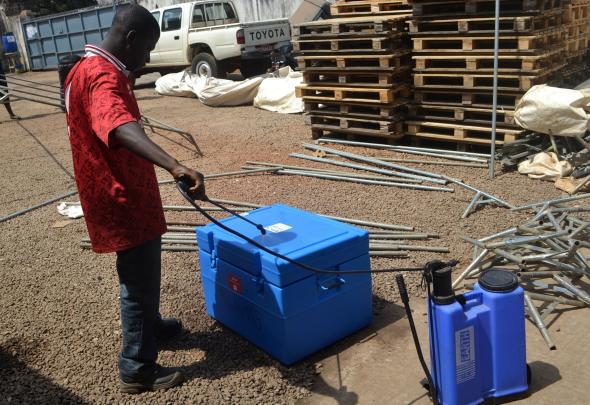An outbreak of the deadly Ebola virus has caused panic in West Africa this week. Guinea has been scrambling to try to contain its first known cases of Ebola that surfaced in February in the country’s remote southeast communities. Guinean officials said on Wednesday that they had contained the outbreak that is estimated to have killed at least 63 people so far, Reuters reports.
There are fears, however, that the deadly virus has spread to neighboring countries. “Liberia, which shares a border with southeastern Guinea, reported five deaths this week from suspected infections in people who had come across the frontier to seek treatment,” according to Reuters. There is one suspected case in neighboring Sierra Leone as well.
“People are really frightened,” Joseph Gbaka Sandounou, from the development organization Plan International, said in a statement reported by Agence France-Presse. “They have seen people die in a matter of just two or three days. They are constantly worried who is going to be the next fatality.” In the affected region in southeast Guinea, residents are avoiding large gatherings and the government has banned the sale and consumption of bats. Bats, a local delicacy, are thought to be one of the main causes for the outbreak, according to the BBC.
How lethal is Ebola? Here’s how Slate’s Katy Waldman described it:
Ninety percent of people infected with Ebola, a hemorrhagic fever, die within 10 days. They experience massive internal bleeding as a protein fastened to the surface of the virus rips into their blood vessels’ endothelial linings, un-knitting all the body’s barrier systems and leaving any open spaces awash in blood. The virus first appeared in 1976 in the Democratic Republic of Congo and has since killed about 600 people. (The upside of the disease’s virulence is that it destroys its hosts too quickly to propagate very far).
“We are not at the end of this epidemic, we continue every day to record a number of new cases or fatalities,” Guinea’s chief disease prevention officer told AFP. “But the daily incidence is lessening. We believe the peak has passed.”
